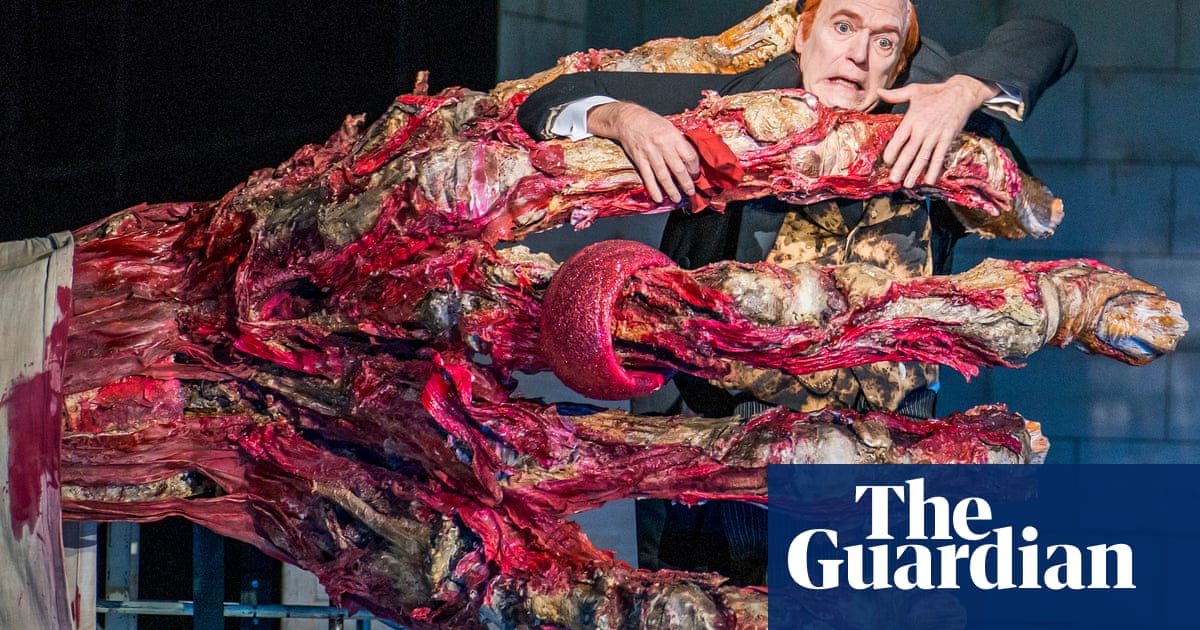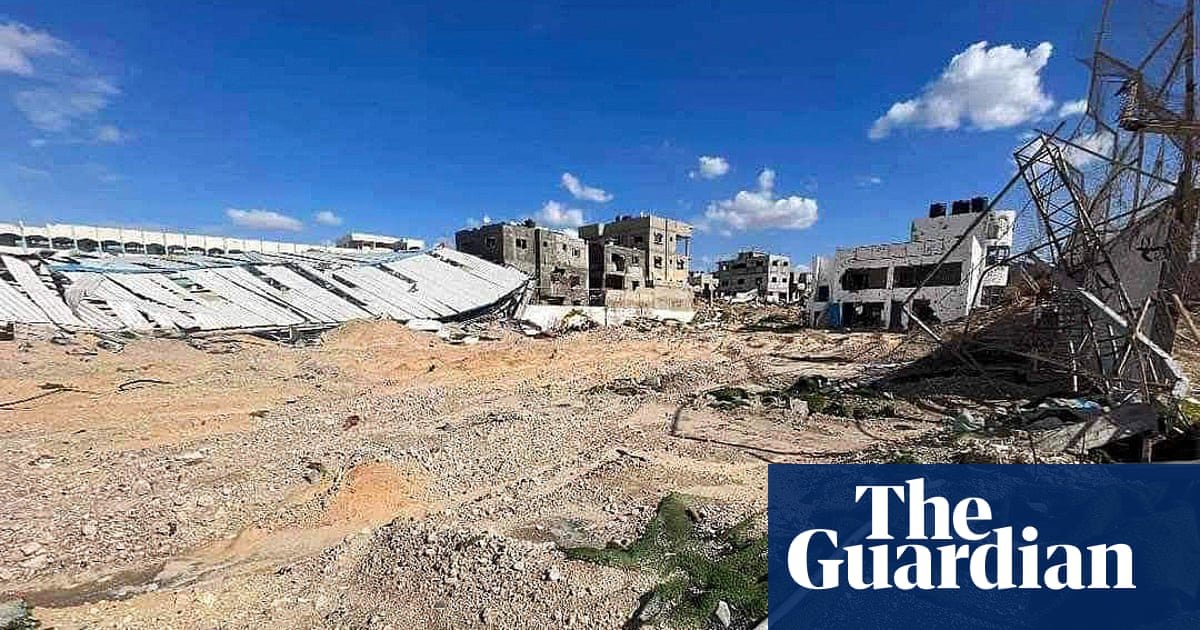
Rory Kinnear, 43, known for his original and discerning performances, from Shakespeare’s Iago to Bill Tanner in the Bond films, is about to star at the Donmar Warehouse in Force Majeure, an adaptation by Tim Price of Ruben Östlund’s chiller of a film about a man who, in what he believes to be a crisis – an avalanche at a ski resort – runs away from his wife and children. It’s a story of desolation, absurdity and unnerving moral ambiguity.
Let’s get down to the big question first: can you ski and how on earth is that going to work on stage?
We went to Hemel Hempstead’s Snow Centre – up to “the Hemelayas”, and our instructor told us: “If you’ve skied before, you won’t have forgotten.” I’d been skiing when I was 10. I hated it and was shouted at by the skiing instructor. My sister was better at it than me and I vowed I’d never, ever do it again. I’d stuck to that – until two weeks ago. As to the staging, the question is how to create something as visually vivid as the film and accentuate its focus within the smaller confines of the Donmar.
Do you see Tomas, the husband/father you play, as a coward or motivated by excusable survival instinct?
We’re aiming to maintain an even finer balance than the film does. The audience must judge. There is a version in which Tomas does not believe he did what he did. We’ve had trauma specialists talk to us about the narratives people create to protect themselves. Everyone makes choices they have to explain, and many place themselves at the centre of their story.
Yet this is a shared story – the portrait of an imperilled marriage. Do you think it an unreasonable expectation for people to try to stay together for ever?
I am civilly partnered [to the actor Pandora Colin]. Having had happily married parents, I assumed that would be my path. But it’s only when you meet the person for whom the decision [to marry] is taken that the ambition crystallises. I think it needs to remain an ambition. Tomas and Ebba see it as accepted fact that their marriage will continue rather than an ambition in need of nurturing.
Have you ever been in a situation in which survival instinct kicked in?
I was filming in Namibia in the desert. I managed to wipe some toxic cactus residue into my eye. I went into anaphylactic shock and my body began to shut down. I realised I was in danger but my tone, as I was driven away at top speed, became incredibly measured, monotone and clear-sighted – my way of trying not to be swamped by panic.
Speaking of survival makes me think of its opposite. I was moved by articles you’ve written about your disabled sister Karina, who died of coronavirus last year. It made me wonder how having a family member who endures so much shapes your perspective growing up.
You cannot negate the impact of what is thrown at you at a young age. But it has only been in the 18 months since Karina’s death that I’m beginning to recognise its impact. I’ve spoken to others with disabled siblings no longer with them, and for nearly all of them it has had a positive impact in terms of their perspective on the world. Karina’s life and her presence and laughter and her view of society … I was able to adopt these into my own life – they’re all I’ve known.
Was it wrong of the NHS to keep your family away when she was dying of Covid? Has it left you with a sense of being cheated, of incompleteness?
We have to afford ourselves leeway in revisiting a time when things were so unknown. It wasn’t that the hospital refused to let us in, but that they could not guarantee our safety [from Covid]. Obviously my mum, faced with the prospect of losing one child, was keen to protect [the rest of] us.
Your father, Roy Kinnear, a brilliant actor, died when you were 10 after falling from a horse on a film. How well do you remember him?
In terms of trauma, Dad dying had the greatest impact on my life. The foundation he gave me was of purest love, entertainment and support. I remember him well – driving to Roehampton to fill the car up, going to the bank, and I remember how, each Saturday, the two of us would set up a little cafe and pretend to be Italian chefs and cook what was basically bacon and eggs.
When playing Bill Tanner in the Bond films, have you ever wished for the action man role yourself?
Luckily, I’m not an action guy – it’s not why I wanted to become an actor. I’ve been on set during fun stunts but usually cower in the corner. I’ve seen the physical regime required to maintain your health within a role like that …
So what did make you want to become an actor?
Going to the National Theatre as a child. Seeing my dad and Anthony Hopkins, Michael Gambon, Ian Charleston … my only ambitions lay in the theatre.
We all have careers/paths untaken … what’s yours?
As a child I wanted to be a butcher. I remember our butcher had a missing digit … an alluring sign of someone committed to their art!
Acting seems to be in your genes. How would you feel if your kids [11-year-old Riley and seven-year-old Hope] wanted to act?
I was lucky having actor parents because I could see it was a doable job. A lot of people have the hurdle of seeing acting as a fiction or dream. While I’d want my children to understand the pitfalls, I could never say: don’t do it. I love being an actor, and the excitement of not knowing what you’re going to be doing six months into the future. Obviously, that impacts on people’s lives, but everyone understands that it’s what you’ve chosen to do and it brings the greatest imaginable happiness professionally.












